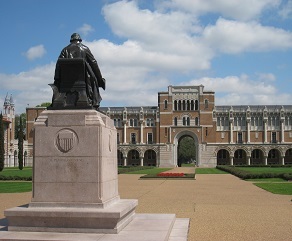A new paper -- co-authored by Rice University oceanographer John Anderson, postdoctoral research associate Lauren Simkins, and graduate student Lidsay Prothro -- links events at the end of the last ice age with current global warming predictions.
The paper was crafted in association with colleagues at the University of Tokyo and looked at the disappearance of the Ross Ice Shelf to explain what might happen to the remaining shelf if the climate continues to change.
Anderson said it is apparent that Antarctica was larger and thicker with ice at the height of the last ice age, but that over a 1,500-year span, 100,000 square miles of the Ross Ice Shelf essentially broke off and melted at the end of the era due to warmer temperatures.
The evidence shows that 10,000 years ago, several icebergs rising at least twice the height of the Empire State Building broke off, leaving the Ross Ice Shelf behind. Should the trend of global warming continue, the present 500-mile-wide shelf breaking off that acts as a brake for dozens of ice streams and glaciers could cause sea levels to rise in a devastating manner.
Researchers continue to uncover evidence of the timing of prior breakup of the Antarctic continent to determine what could happen.


 Alerts Sign-up
Alerts Sign-up